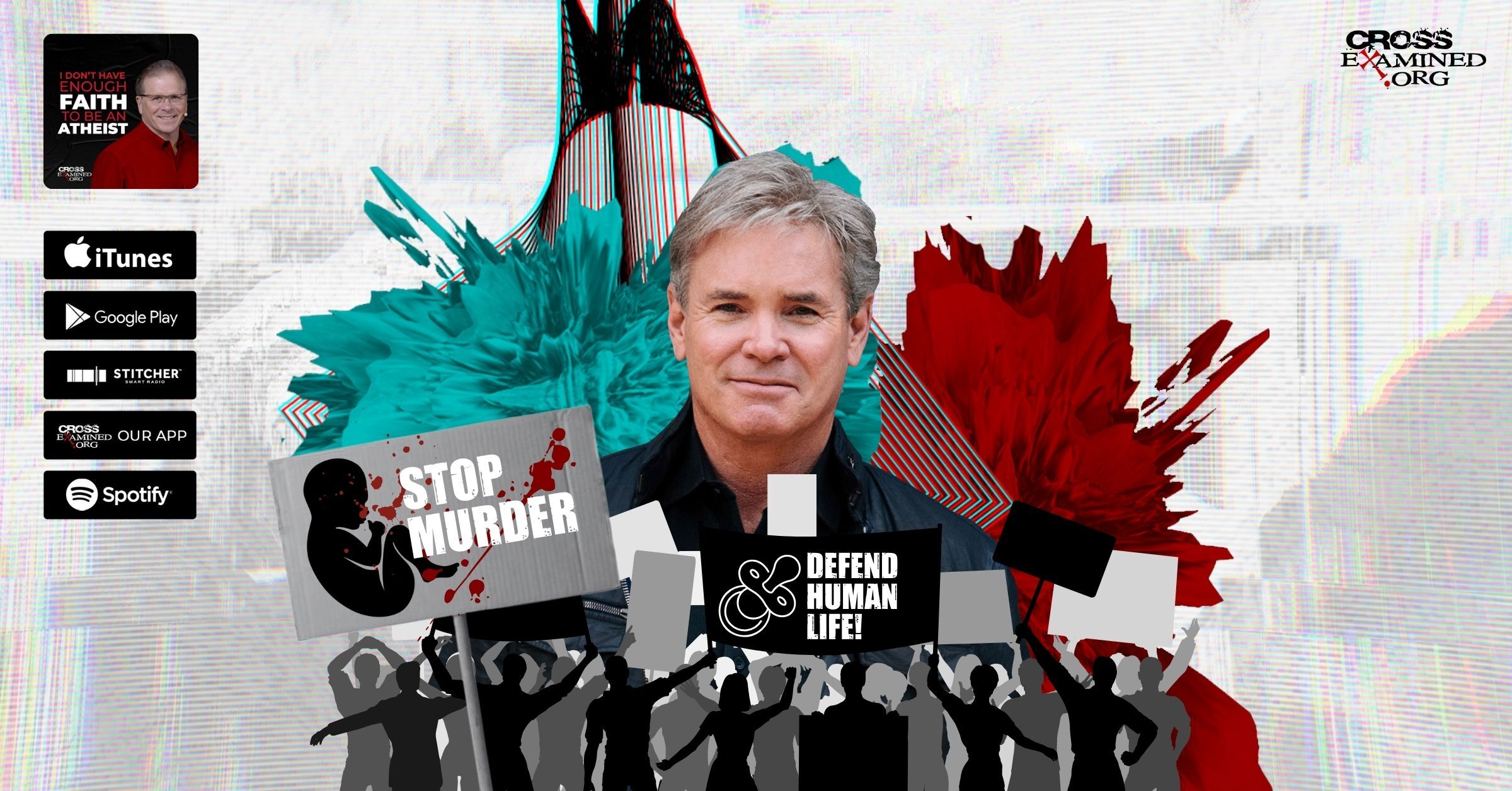By Frank Turek
It’s become fashionable lately for atheists to claim that atheism is “a lack of belief in God.” So when a theist comes along and says that atheists can’t hold to their worldview, some atheists will say something like, “Oh, we don’t really have a worldview. We just lack a belief in God. Since we make no positive claims about the world, we have no burden of proof to support atheism. We just find the arguments for God lacking.”
What is missing are good reasons to believe in this new definition.
First, if atheism is simply a lack of belief in God, then atheism is just a claim about the atheist’s mental state, not a claim about God’s existence. The “atheist” simply says, “I’m not psychologically convinced that God exists.” So what? That offers no evidence for or against God. Most people lack a belief in unguided evolution, but no atheist would say that proves evolution false.
Secondly, if atheism is simply a lack of belief in God, then rocks, trees, and latrines are all “atheistic” because they also lack a belief in God. It doesn’t take any brains to “disbelieve” in something. A true atheist believes there is no God.
Third, most atheists don’t just “lack a belief in God” because they constantly try to explain the world by offering supposed alternatives to God. Atheists write book after book insisting that God has no job because of quantum theory, multiple universes, and evolution. While none of these atheistic arguments succeed in proving that there is no God, they do show that atheists not only lack a belief in God, but believe in certain theories to explain reality without God.
They believe in such theories because atheism is a worldview with beliefs just as much as theism is a worldview with beliefs. (A “worldview” is a set of beliefs about the big questions of life, such as: What is ultimate reality? Who are we? What is the meaning of life? How should we live? What is our destiny? etc.) To claim that atheism is not a worldview is like saying that anarchy is not really a political position. As Bo Jinn observes, “An anarchist can say that he or she simply ‘rejects politics,’ but he or she is still faced with the inescapable problem of how human society should be organized, whether or not he or she likes the idea of someone being in charge.”
Similarly, atheists may claim to just “reject God,” but they still face the inescapable problem of how to explain ultimate reality. Just as anarchists affirm the positive belief that anarchy is the best way to organize society, atheists affirm the positive belief that atheistic materialism is the best way to explain ultimate reality.
In other words, atheists do not “lack a belief” in materialism. They are not skeptics of materialism – they believe it is true! As Phillip Johnson said, “He who is skeptical in one set of beliefs is a true believer in another set of beliefs.” Lack of belief in God does not automatically establish materialism, any more than lack of belief in atheism automatically establishes Christianity. No atheist would say that a Christian has made a good case because he “lacks a belief” in materialism!
Each has the burden of proof to support his position. Atheists must positively argue that only material things exist. So rather than debate “Does God exist?” I prefer to debate the question “Which explains reality better: atheism or theism?” So it is obvious that both debaters have the burden of proof to support their position. Atheists cannot simply identify what they believe to be shortcomings of theism. They must present a convincing case that everything has been caused by matter and consists only of material things, including:
– The beginning of the universe
– The fine-tuning of the universe
– The laws of nature
– The laws of logic
– The laws of mathematics
– Information (genetic code)
– Life
– Mind and consciousness
– Free will
– Objective morality
– Evil
It is rare to find an atheist who attempts to explain more than one or two of these things materially. How could they do so? How can laws be material? New atheists must provide reasons to support their belief that materialism is true. Simply lacking a belief in God does not prove their worldview.
Finally, the definition of “I simply lack a belief in God” leads to a contradictory result. As Dr. Richard Howe notes, “This definition of atheism carries with it the extravagant conclusion that atheism is logically compatible with theism.” Here’s why: If lacking a belief in God is the definition of “atheism”—and not “there is no God”—then “atheism” is true even if God actually exists. How is that reasonable?
We should not allow atheists to hide behind that definition of lack. A true atheist is someone who believes there is no God. And atheists have the burden of proof to show how materialism is true and reality can be explained without God.
Recommended resources in Spanish:
Stealing from God ( Paperback ), ( Teacher Study Guide ), and ( Student Study Guide ) by Dr. Frank Turek
Why I Don’t Have Enough Faith to Be an Atheist ( Complete DVD Series ), ( Teacher’s Workbook ), and ( Student’s Handbook ) by Dr. Frank Turek
_____________________________________________________________________________________________________________________________________________________
Dr. Frank Turek (D.Min.) is an award-winning author and university speaker who hosts a weekly television show on DirectTV and a radio program that airs on 186 stations nationwide. His books include I Don’t Have Enough Faith to Be an Atheist and Robbing God: Why Atheists Need God.
Original source of the Blog: https://bit.ly/3r9vZBl
Translated by Daniela Checa Delgado
Edited by Elenita Romero











